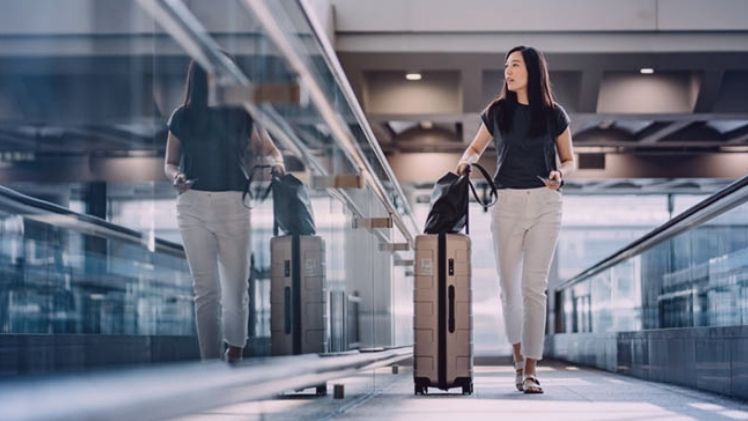Colombia is a treasure trove of natural beauty, vibrant culture, and historical landmarks. Whether exploring Cartagena’s colonial charm or trekking through the Amazon, health and safety are paramount. The Centers for Disease Control and Prevention (CDC Travel Colombia) offers guidelines to help you navigate health risks and travel requirements. This comprehensive guide provides everything you need to know about staying healthy and safe during your trip to Colombia.
Understanding CDC Travel Guidelines for Colombia
The CDC’s travel guidelines for Colombia include recommendations for vaccinations, health precautions, and safety practices. These measures are designed to ensure a healthy trip and minimize potential risks.
Essential Vaccinations for Colombia Travel
Before traveling to Colombia, ensure you are up-to-date with routine vaccines such as MMR, tetanus, and influenza. The CDC also recommends additional vaccinations, including:
- Hepatitis A and B: Due to the potential for contaminated food or water.
- Typhoid: Especially for travelers visiting rural areas.
- Yellow Fever: Mandatory for entry into some regions.
Malaria and Mosquito-Borne Illness Prevention
Colombia is home to malaria, dengue fever, and Zika virus in certain areas. Protect yourself by:
- Using insect repellents with DEET or picaridin.
- Sleeping under mosquito nets.
- Taking antimalarial medications if prescribed.
Food and Water Safety in Colombia
Foodborne illnesses are a common risk for travelers. Reduce exposure by:
- Avoiding tap water; opt for bottled or filtered water.
- Consuming food from reputable vendors.
- Steering clear of raw or undercooked dishes, especially seafood.
COVID-19 Guidelines for Colombia Travel
As of the latest updates, travelers should check COVID-19 vaccination or testing requirements before departure. Ensure you carry proof of vaccination or negative test results if mandated.
Travel Insurance: Why It’s Crucial for Colombia
Comprehensive travel insurance is essential for covering medical emergencies, trip cancellations, and unexpected situations. Verify that your policy includes coverage for adventure activities, such as hiking or diving.
Navigating Colombia’s Healthcare System as a Visitor
While Colombia boasts quality healthcare in major cities, accessing care in rural areas can be challenging. Tips for navigating the system include:
- Researching nearby hospitals before your trip.
- Carrying a list of Spanish phrases for medical emergencies.
- Keeping cash handy for minor medical expenses.
Regional Health Risks and Precautions
Colombia’s diverse regions pose unique health risks. For instance:
- Amazon Region: Higher risk of malaria and other tropical diseases.
- Coastal Areas: Beware of sunburn and dehydration.
Prepare accordingly by researching your destination’s specific risks.
Personal Safety Tips While Traveling in Colombia
Although Colombia has improved its safety in recent years, travelers should remain cautious:
- Avoid traveling alone at night.
- Keep valuables out of sight.
- Stay informed about local areas to avoid high-risk zones.
Staying Updated: CDC Alerts and Travel Resources
Subscribe to CDC alerts for real-time updates on travel advisories. Utilize official resources like the U.S. Department of State for safety updates specific to Colombia.
Conclusion
Colombia is an incredible destination, but preparing for your trip with the cdc travel colombia guidelines ensures a safe and enjoyable experience. From vaccinations to personal safety, taking precautions helps you focus on the beauty of Colombia’s vibrant culture and breathtaking landscapes. By staying informed, you can fully immerse yourself in the adventure while prioritizing your health and well-being.
FAQs about CDC Travel Colombia
What vaccines are necessary for travel to Colombia?
The CDC recommends routine vaccines like MMR and tetanus, along with specific ones like hepatitis A, typhoid, and yellow fever for certain regions.
Is malaria a concern in Colombia?
Malaria is a risk in some regions of Colombia, particularly rural and jungle areas. Use repellents, wear protective clothing, and consider antimalarial medications.
Are there COVID-19 entry requirements for Colombia?
Travelers should verify current requirements, which may include proof of COVID-19 vaccination or a negative test. Regulations are subject to change.
Can I drink tap water in Colombia?
No, it’s best to avoid tap water. Stick to bottled or filtered water and be cautious with ice or beverages made with unfiltered water.
How reliable is Colombia’s healthcare system for tourists?
Healthcare in major cities is high quality, but rural areas may lack advanced facilities. Travel insurance and basic Spanish phrases can help in emergencies.

